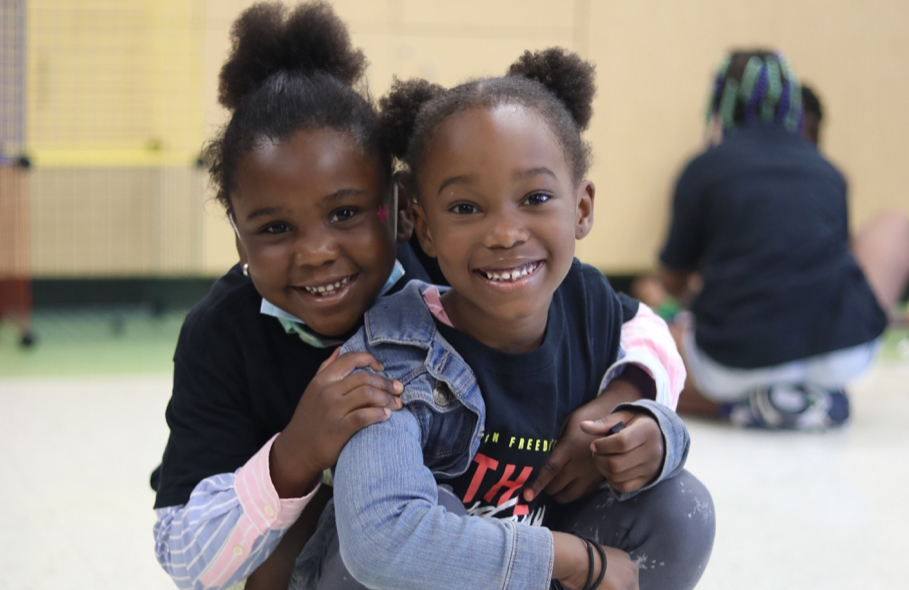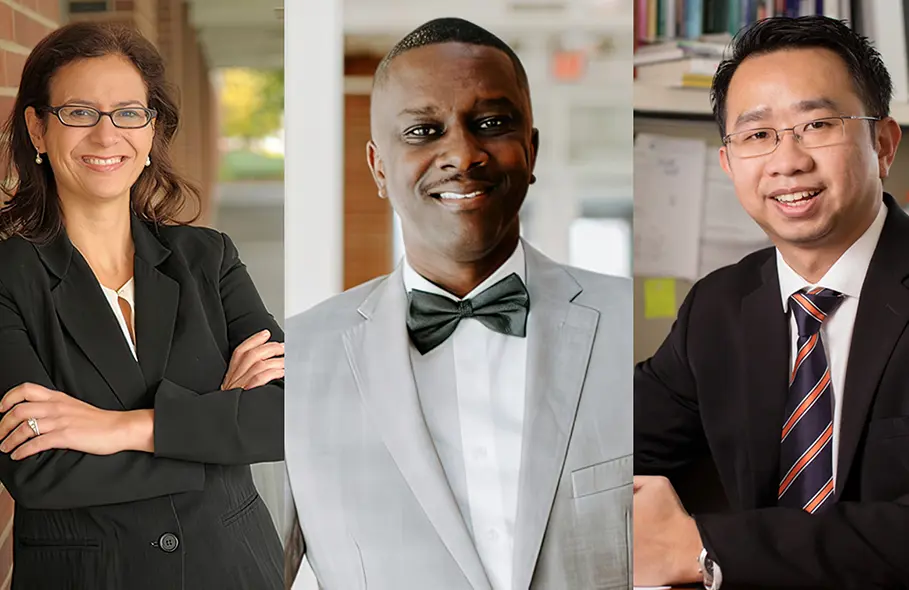Freedom School: Transforming Lives and Building Communities
by Tom Hanlon / Sep 22, 2021

Normally, kids don’t want to go to summer school. But Freedom School is not your normal school. Learn why 35 youngsters in the Champaign area couldn’t wait to get to school each day this summer.
Many children cried on the last day of Freedom School. One boy flat-out refused to leave. Instead, he sat in on a staff debriefing. When asked why he didn’t want to leave school, he said “Because Freedom School lets me be me.”
This same child vowed to walk to the six-week summer school, located at Garden Hills Academy in north Champaign, if he missed the bus or his parents couldn’t take him.
“Freedom School is an academic space where you learn and are focused in,” says project co-director Alicia Robinson. “But it’s far from your traditional school environment.”
Thirty-five K-5th grade students attended the summer enrichment program, which is focused on literacy and primarily African American culture. Freedom Schools were born out of the Children’s Defense Fund, an organization founded in 1973 by Marian Wright Edelman, the first black woman to pass the bar exam in Mississippi. “The Children’s Defense Fund founded a national Freedom School program in 1995,” says Jon Hale, associate professor in EPOL and C&I in the College of Education and executive director of Freedom School in Champaign. “The Freedom School in Champaign was part of this national network.”
Hale completed a dissertation on the history of the Mississippi Freedom School while earning his doctorate at the University of Illinois. That work was the basis for his first book, The Freedom Schools: Student Activists in the Mississippi Civil Rights Movement.
“Marian Wright Edelman spoke at the College of Charleston after Dylann Roof killed nine people in the Mother Emanuel AME Church,” Hale says. “She challenged the city to start a Freedom School and a small group of us were inspired to found a Freedom School there, the first in the city. I helped start one other Freedom School before moving to Illinois and served on the board of an existing school in South Carolina. I also work with the Children’s Defense Fund as part of their national training and research initiatives.”
Filling a Void
Cessily Thomas, a teacher at Centennial High School in Champaign, was with the Champaign Freedom School at its inception in 2003. She served with the program from 2003 to 2010. This summer marked the first Freedom School in Champaign since 2013.
“One of the main problems with our young people is they don’t know who they are,” Thomas says. “They don’t have a connection to anything. They can’t love their brother because they don’t know who they are, they don’t love themselves. Freedom School fills that void. It teaches children that they are worthy, they’re enough, they’re smart, they’re important. No child can come into Freedom School and think they don’t matter.”
Robinson has a deep background in Freedom Schools as well. She earned her PhD from the College of Education this past May, writing her dissertation on Freedom Schools, and has been a part of Freedom Schools and the Children’s Defense Fund since 2006. She has also served as a trainer for the program nationally.
Robinson and Thomas were the project co-directors. They oversaw the work of two site coordinators and four servant leaders (college students who had some experience in the local community and who ran the classrooms).
Engaging in Inspirational Reading
“The goal is for children to engage in a reading curriculum and develop a love for reading,” says Robinson. They started each day with Harambee, which is Swahili for let’s pull together. “They would sing songs, chant, and have an opportunity to be recognized for who they are. Everyone starts the day on a positive note.”
From there, Robinson says, the children broke into two levels, one for K-2, the other for 3-5, and read and engage in related activities.
“Freedom Schools draw young people in,” Robinson says. “It connects them in a way that’s unique to Freedom Schools.” The books that are selected each year, she adds, are related to the civil rights movement or to a current issue in the black community or to an issue that is related to what all young people can experience: bullying, self-esteem, and mental health issues, among others.
“The curriculum exposes young people to stories about defeat and triumph,” Robinson says. “The material shows how we rise above, how we have this resilience in our DNA that transcends whatever the system does to us.”
Strong Support for Freedom School
The program was only possible with local support for the program. As Hale noted, “Dr. Asia Fuller Hamilton, the Principal of Garden Hills Academy, and Tracy Dace [founder of Driven to Reach Excellent and Academic Achievement for Males] were both so instrumental.” Some members of the Garden Hills Community–including Vernessa Gipson who founded the first Freedom School in Champaign and parent advocate Felicia Johnson–stepped in to provide integral leadership and support.
“It’s also exciting that the university is so supportive of this idea. The University of Illinois is one of a small handful of universities across the nation that support a Freedom School,” say Hale. "The chancellor [Robert J. Jones], Wanda Ward [executive associate chancellor for public engagement], Dean [James D.] Anderson, and Dr. Bill Trent, Director of the Center for Education in Small Urban Communities, were all behind it. Illinois is ahead of the national curve in leading the way to bring Freedom Schools to a new level.”
While Robinson is grateful for support from the University of Illinois, she notes the need to create a nest egg to sustain the program beyond those three years.
“It is rather expensive,” she says. “But it’s an award-winning program.”
Strong Impact on Children
The impact it has on the children makes the program priceless in Thomas’s eyes. She tells the story of her son, who went to the school this summer, finally wearing the dashiki (a brightly-colored shirt originally from West Africa) that she had bought for him. “Before, it was just a shirt that his mom bought for him so he could match his brother and sister,” she says, laughing. “After a couple of weeks at Freedom School, he understood the strength and the courage and what it means to be a wonderful, beautiful black boy.”
Hard to put a price tag on that.
“Freedom Schools change the way children see themselves and each other,” Thomas says. “It shows kids they don’t have to accept the world as it is around them. They have the power, the intelligence, the strength, and the ability to change their situation.
“That’s what they learn at Freedom School, and that’s what we hope they take with them wherever they go.”
